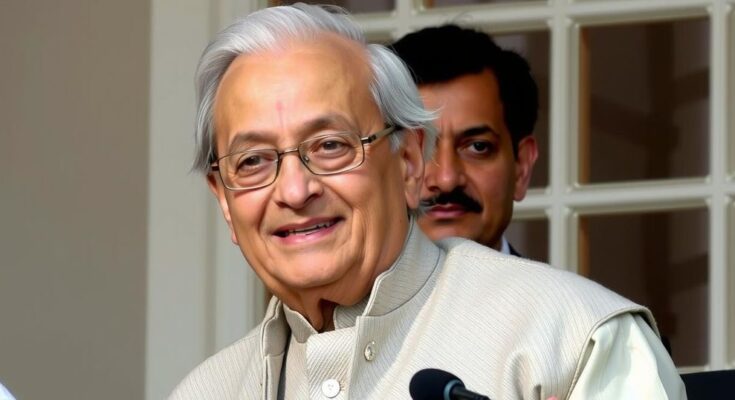Former Indian Prime Minister Manmohan Singh, aged 92, has died. Known for his pivotal role in India’s economic reforms, Singh led the country towards becoming a competitive economic force. He was the first Sikh prime minister and remembered for his quiet demeanor and significant contributions to public policy despite facing political controversies.
Manmohan Singh, the 92-year-old former Prime Minister of India, has passed away in New Delhi. Singh was notable for being the first Sikh to hold the office and played a crucial role in introducing economic reforms that transformed India into a significant economic power. His tenure saw the nation embrace free-market policies, thereby stimulating growth and enabling India to compete with larger economies, notably China.
His death was confirmed by the All India Institute of Medical Sciences, with current Prime Minister Narendra Modi acknowledging Singh as one of India’s “most distinguished leaders.” Singh, born in what is now Pakistan, was part of a generation shaped by the upheavals following the Partition of India in 1947, which instigated numerous ethnic and political challenges.
Despite his significant contributions, Singh was known for his quiet demeanor and limited public engagements, having only conducted a few press conferences while facing allegations of corruption during his tenure. He first gained prominence during his term as finance minister in 1991, where he orchestrated key reforms that paved the way for economic expansion in one of the world’s most populous nations, even as it continued to grapple with deep-seated poverty.
Manmohan Singh served as the Prime Minister of India from 2004 to 2014, and prior to that, he was the Finance Minister who initiated unprecedented economic liberalization in 1991. His policies focused on opening up the Indian economy, attracting foreign investment, and fostering a competitive environment that contributed to significant economic growth. Singh’s leadership was marked by a unique blend of economic expertise and a cautious approach to political engagement, which often contrasted with the more overtly assertive styles of his contemporaries. His legacy is associated with both achievements in nation-building and challenges in governance that led to controversies during his administration.
In conclusion, the passing of Manmohan Singh marks the end of an era for Indian politics and economics. His legacy will undoubtedly be remembered for the economic reforms he championed, which set India on a progressive trajectory toward becoming a global competitor. Singh’s unique identity as the first Sikh Prime Minister and the challenges faced throughout his career serve as a testament to his complex yet impactful contribution to Indian society and governance.
Original Source: www.nytimes.com




